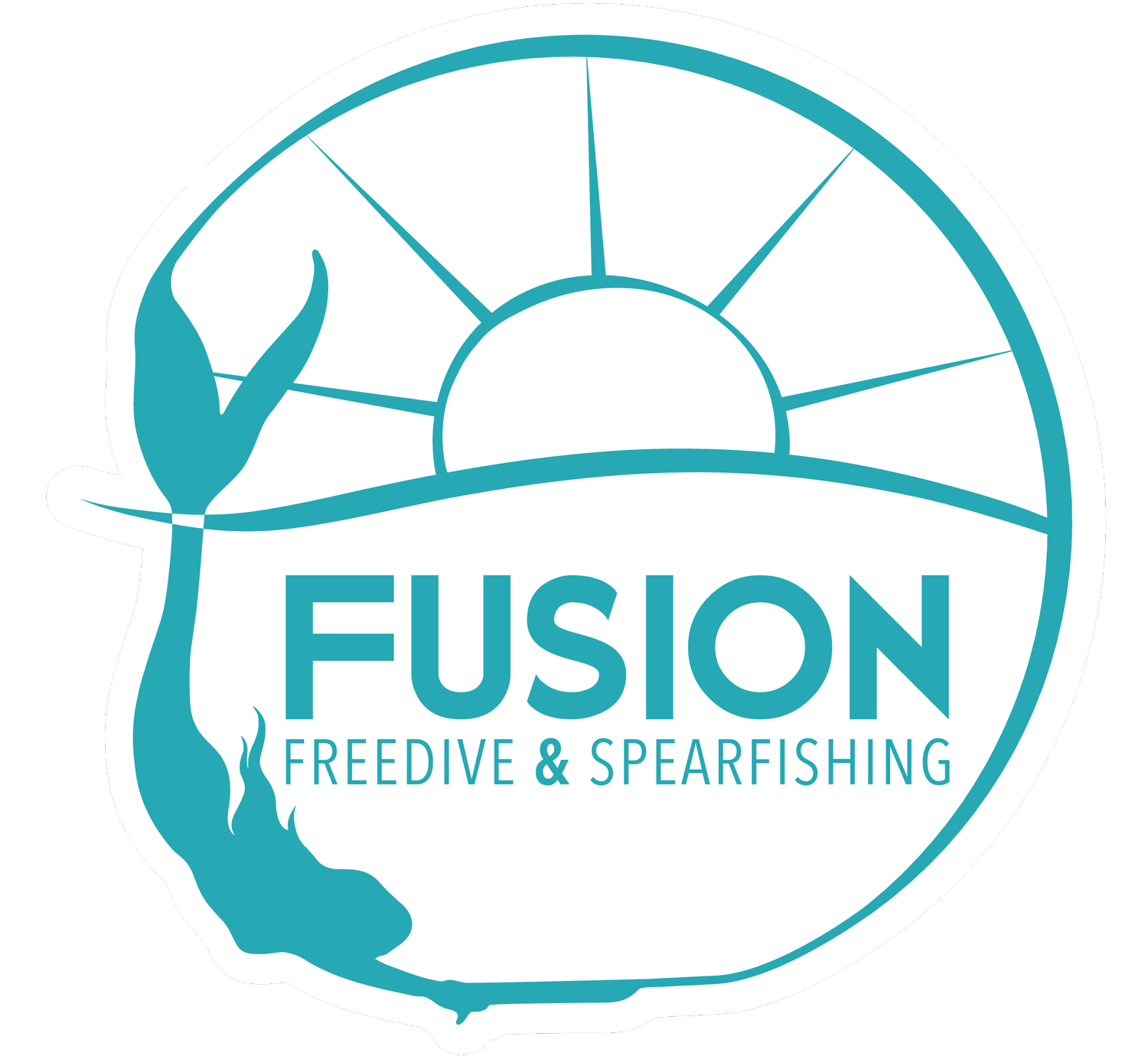The Role of Breath-Holding in Building Mental Resilience
Breath-holding might seem like just a physical challenge, but it’s also a powerful way to train your mind. In freediving, holding your breath underwater isn’t just about oxygen - it’s about staying calm, managing stress, and developing mental strength.
At Fusion Freedive and Spearfishing, we’ve seen how practicing breath-holding can make people not only better divers but also more resilient in their daily lives. Let’s explore how this simple yet challenging act can strengthen your mind and improve your well-being.
What Happens to Your Mind During Breath-Holding?
When you hold your breath, your body sends signals urging you to breathe. These signals are a mix of physical sensations, like a rising urge to breathe, and mental reactions, like doubt or panic.
The key to overcoming these reactions isn’t brute strength - it’s training your mind to stay calm and in control. By doing this, you’re not just holding your breath longer; you’re learning how to handle pressure and uncertainty in a way that can benefit all areas of your life.
Example: Think about a stressful situation at work. Instead of reacting immediately, you take a moment to pause, think clearly, and respond thoughtfully. Breath-holding teaches you that same skill - control over your reactions.
How Breath-Holding Builds Mental Strength
Teaches You to Stay Calm Under Pressure
When you start to feel the need to breathe, staying calm is the hardest part. Freedivers train to focus on the moment, slowing their heart rates and keeping their minds clear. This skill translates directly to handling high-pressure situations on land.Improves Focus and Patience
Holding your breath requires you to stay completely present. You can’t think about your to-do list or what’s for dinner - you’re focused only on the here and now. This level of focus helps sharpen your mind and improves patience.Helps You Push Past Mental Limits
Your mind often gives up before your body does. By holding your breath and pushing past that initial discomfort, you train yourself to recognize the difference between real limits and perceived ones.Reduces Stress Over Time
The breathing exercises you practice for freediving also help reduce stress in daily life. Slow, controlled breathing can lower your heart rate, calm your mind, and bring you back to a balanced state, even in tough situations.
Breath-Holding and Emotional Resilience
Building emotional resilience is about learning to stay steady when things feel overwhelming. When you’re underwater holding your breath, your emotions can range from fear to frustration. Training to manage those emotions is a powerful way to become emotionally stronger.
Real-Life Benefit: Let’s say you’re having a difficult conversation. Instead of reacting emotionally, you take a moment to pause, breathe deeply, and respond with clarity. This calmness is something breath-holding can help you develop.
Tips for Practicing Breath-Holding Safely
Always Practice with a Partner
Never practice breath-holding alone. Even on land, it’s important to have someone nearby to ensure your safety.Start Small
Don’t push yourself to the limit right away. Begin with shorter holds and gradually increase your time as you get more comfortable.Practice Relaxation Techniques
Before you hold your breath, practice deep, slow breathing. This calms your body and mind, helping you hold your breath for longer.Focus on Form
Whether you’re in the water or on land, good posture and relaxation are key. Let go of unnecessary tension in your shoulders, neck, and face.Take a Course
A professional freediving course will teach you the right techniques and safety measures. At Fusion Freedive and Spearfishing, we guide students step-by-step to improve their skills and confidence.
Why Mental Resilience Matters in Freediving and Life
Freediving is a sport that requires both physical and mental strength. The ability to stay calm and focused underwater mirrors the challenges we face in everyday life - stress, deadlines, tough decisions. By training your mind through breath-holding, you’re better prepared to face those challenges with clarity and control.
At Work: Handle deadlines or conflicts without losing focus.
In Relationships: Stay calm during emotional conversations.
For Yourself: Build confidence in your ability to handle tough situations.
What Our Students Say
Greg, a recent student at Fusion Freedive, shared:
"Freediving has taught me more than how to dive - it’s shown me how to manage stress and stay calm in difficult moments. I’ve taken these lessons into my daily life, and the results have been amazing."
Take the First Step Toward a Stronger Mind
Building mental resilience isn’t just for freedivers - it’s for everyone. Practicing breath-holding can help you stay calm, focused, and in control, no matter what life throws your way.
Ready to give it a try? Join us at Fusion Freedive and Spearfishing for expert guidance on freediving and breath-holding techniques. Let’s strengthen your mind and body together - one breath at a time.
